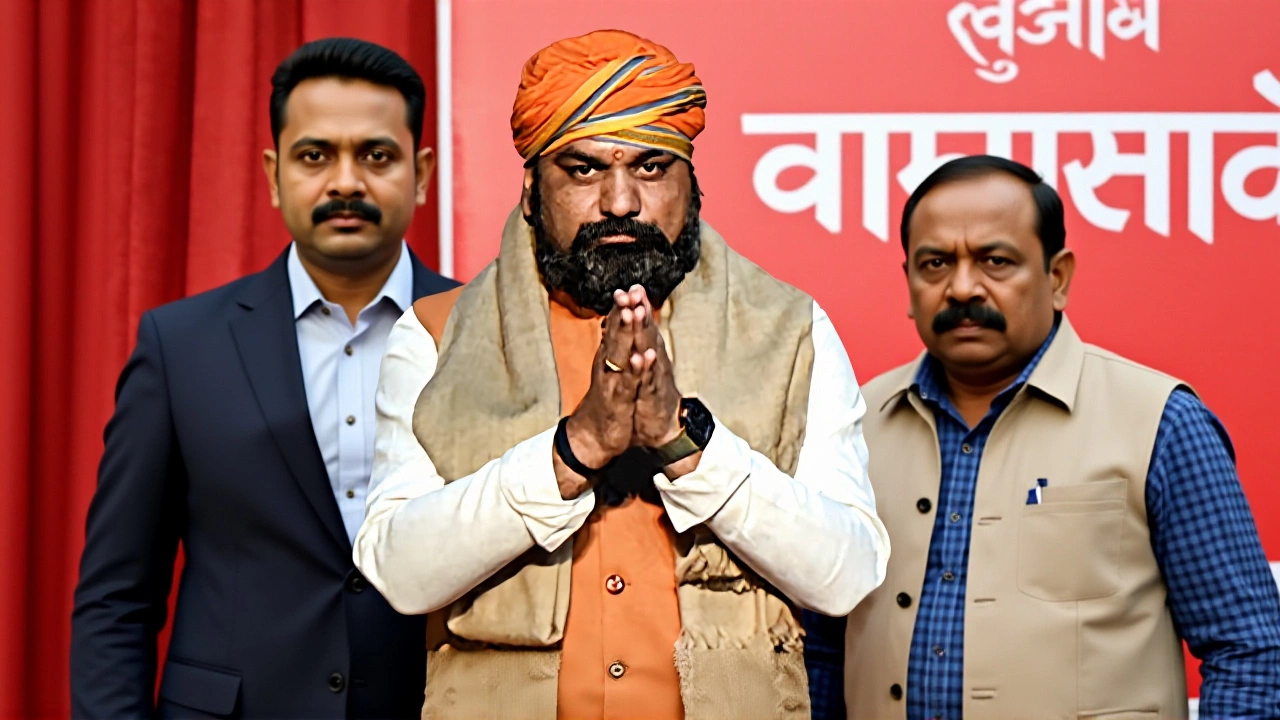Within 24 hours of taking charge as Bihar’s Home Minister, Samrat Chaudhary sent a message to the state’s underworld: there’s no more room for criminals. On Friday night, just hours after the BJP leader was handed the home portfolio in Chief Minister Nitish Kumar’s reshuffled cabinet, a high-stakes encounter unfolded in the Begusarai district’s Sahibpur Kamal police station area. Police, backed by the Special Task Force (STF), cornered a notorious gang led by Shivdatt Rai — a man with over a dozen pending FIRs — in the villages of Shaligram and Malhipur. What followed wasn’t just a raid. It was a reckoning.
‘Now the Samrat Has Arrived’
The operation began with a tip-off: Shivdatt Rai was spotted near Malhipur, allegedly buying weapons. By 11 p.m., a joint STF and local police team had surrounded the area. What happened next was chaotic. As officers moved in, the gang opened fire. Witnesses reported six men on two bikes, armed and aggressive. Police say they fired back in self-defense. One bullet struck Shivdatt Rai in the thigh. Another lodged in his calf. He was rushed to Begusarai Sadar Hospital, where he’s now recovering under police guard.
"We didn’t go there to kill," said SP Manish during a press briefing. "We went because we were told a violent crime was being planned. When they fired first, we had no choice. This wasn’t a staged encounter. It was survival." But the aftermath told a different story. Police recovered a carbine, seven pistols, a semi-made revolver, ₹3.7 lakh in cash, and 940 bottles of cough syrup — a common front for illegal drug distribution in rural Bihar.
Why This Encounter Feels Different
This wasn’t just another police operation. It was symbolic. The timing was too precise. Chaudhary was sworn in as Home Minister on Friday morning. By Friday night, the STF was already in action. That’s not coincidence. That’s command. And it’s sending ripples across the state’s criminal networks. BJP leader Shahnawaz Hussain didn’t mince words: "Let them know — the Samrat has arrived. Time’s up." Chaudhary himself didn’t hold back. In a terse statement released hours after the encounter, he said: "Bihar is not for criminals. They must leave. There will be no mercy. No more hiding. No more deals." The message is clear: the old ways — bribes, protection rackets, slow investigations — are over. This is the Yogi model in Bihar. The same hardline tactics that defined Yogi Adityanath’s rule in Uttar Pradesh — swift encounters, zero tolerance, public messaging — are now being replicated here. And the people? Many are watching, waiting to see if it’s theater… or transformation.

A Pattern Emerges
This wasn’t even the first encounter in Begusarai this week. Two days before, in the Teghara police station area, another gang member was killed in a similar firefight. Now, within 72 hours, two major operations. Both in the same district. Both led by the same STF unit. Both occurring under the watch of a new Home Minister who’s barely had time to unpack his office.
What’s unusual is the speed. In the past, such cases would take weeks to build — warrants, surveillance, court approvals. Now? Intelligence, action, result — all within hours. And the weapons seized? Not just guns. Cough syrup. That’s not random. It’s a sign the gang was preparing for something bigger — possibly a drug shipment, or a hit. The fact that police moved before the crime happened? That’s intelligence-led policing. And it’s working.
What’s at Stake
Bihar has long struggled with criminal-politician ties. In Begusarai, gangsters operated like local warlords — controlling land, extortion, even elections. Shivdatt Rai’s name popped up in over a dozen cases: extortion, attempted murder, illegal arms trade. He wasn’t just a thug. He was a system.
But now, the system is being challenged. The state government, under Nitish Kumar, has historically favored negotiation over confrontation. Chaudhary’s arrival signals a seismic shift. Is this a one-off? Or the start of a new era?
Observers are divided. Some say it’s political theater — a PR stunt to appease voters ahead of upcoming elections. Others argue it’s the first real crack in Bihar’s entrenched criminal networks. Either way, the message is loud: if you’re a criminal in Bihar, you’re no longer safe.

What Comes Next
Chaudhary’s office has promised a review of all pending cases involving armed gangs. A special court is reportedly being set up to fast-track trials. The STF is being expanded, with 50 new officers recruited from across the state. And there are whispers of a new digital intelligence unit — tracking phone calls, bank transfers, and even social media chatter.
But the real test will be sustainability. Can this energy last beyond the headlines? Can the police maintain this pace without accusations of extrajudicial killings? Can the public trust that justice, not vengeance, is driving these operations?
For now, the streets of Begusarai are quieter. The gangs are silent. And in a state where fear once ruled, a new kind of silence has taken hold — the kind that comes when the powerful decide they’re done playing nice.
Frequently Asked Questions
How did Samrat Chaudhary’s appointment trigger this encounter?
Chaudhary was officially sworn in as Home Minister on Friday morning. The encounter occurred just 18 hours later — a timeline too tight to be coincidental. Sources within the STF confirm that operational orders were issued within hours of his swearing-in, signaling a new directive: immediate, aggressive action against known armed gangs. The timing was intentional — a statement of intent.
Why was cough syrup seized in an arms raid?
Cough syrup containing codeine is a common ingredient in illicit drug manufacturing in rural Bihar. Gangs use it to produce narcotics like "brown sugar" or synthetic opioids. Seizing 940 bottles suggests the gang was preparing for large-scale drug distribution — not just street-level sales. This links the operation to broader organized crime networks across Bihar and Jharkhand.
Is this encounter legally justified?
Police claim self-defense, citing eyewitness accounts and weapon recovery. The STF has filed a formal report under Section 157 of the CrPC. However, independent human rights groups have called for an inquiry, noting that no civilian injuries were reported — a rarity in such encounters. A magisterial probe is expected, but no formal complaint has been filed yet.
How does this compare to Yogi Adityanath’s model in Uttar Pradesh?
The tactics are similar: rapid response, public messaging, and high-profile encounters. But Bihar’s approach lacks the centralized political branding seen in UP. While Yogi’s team openly called it "encounter culture," Chaudhary’s team avoids the term, calling it "operational neutralization." Still, the effect is the same — criminals are afraid. The key difference? Bihar’s judiciary remains more independent, which may lead to greater scrutiny.
What’s the public reaction in Begusarai?
In villages like Shaligram and Malhipur, many residents are relieved. Local shopkeepers say extortion demands have dropped 70% since the encounter. But some families of accused men are protesting, calling it a "targeted killing." Social media is divided: #SamratHasArrived trends in Bihar, while #JusticeForShivdatt is gaining traction in urban centers. The truth? Most people just want safety — and right now, they feel it’s finally possible.
Will this crackdown last?
It depends on political will. Chaudhary’s rise is tied to BJP’s growing influence in Bihar, but Nitish Kumar’s JD(U) still holds the reins. If the next cabinet reshuffle removes Chaudhary, the momentum could stall. However, the STF’s new structure and intelligence network may outlast any individual. The real question isn’t about one man — it’s whether Bihar’s institutions have finally found the courage to act.
